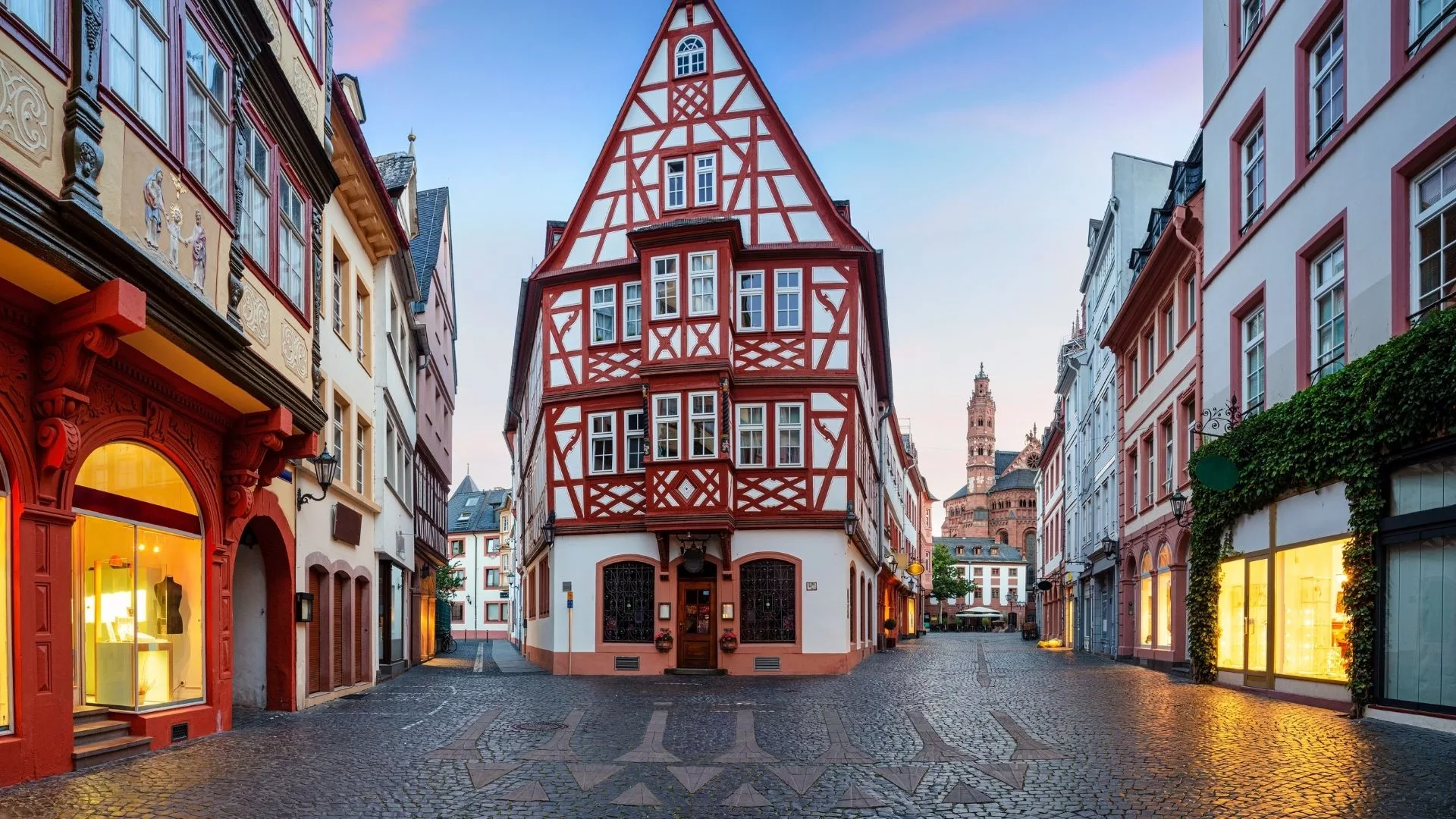Best time to visit Germany

Germany attracts travelers year-round with its rich history, vibrant culture and spectacular landscapes. But choosing the best time to visit Germany, can greatly enhance your experience. From the festive atmosphere of Christmas markets to the lush greenery of summer, each season offers its own unique charm. Here is a comprehensive guide to help you plan your Germany trip with precision.
1. Spring: Flowers and fresh Air
Spring in Germany, particularly from April to June, is a time of renewal and awakening. As the harsh grip of winter loosens its hold, the countryside comes alive with a riot of colors as cherry blossoms, tulips, and daffodils bloom. The air is filled with the sweet scent of flowers, and the landscape is blanketed in vibrant hues.

It’s an ideal time for outdoor activities like hiking in the Black Forest, cycling along the Rhine River, or picnicking in one of Germany’s many picturesque parks. The weather is mild and pleasant, perfect for exploring historic cities and charming villages at a leisurely pace.
Moreover, spring sees fewer crowds compared to the peak summer months, allowing you to immerse yourself in the tranquility of nature and discover hidden gems without the hustle and bustle of tourist crowds. From the fairy-tale castles of Bavaria to the medieval streets of Rothenburg ob der Tauber, spring offers a serene backdrop for exploration and discovery.
In addition to natural beauty, spring also marks the start of festival season in Germany. From the famous Frühlingsfest in Stuttgart, celebrating the arrival of spring with beer tents and amusement rides, to the vibrant Karneval celebrations in Cologne, where streets come alive with parades and colorful costumes, there’s no shortage of cultural events to immerse yourself in during this time of year.
2. Summer: Festivals and Outdoor Adventures
From June to August, the country basks in warm temperatures, making it perfect for outdoor adventures and sightseeing.
Moreover, summer in Germany is synonymous with festivals and events. From the world-renowned Oktoberfest in Munich, where millions of visitors gather to celebrate Bavarian culture with beer, music, and traditional cuisine, to the vibrant Christopher Street Day parades , the summer calendar is packed with cultural festivities that offer a glimpse into German traditions and customs.

However, it’s worth noting that summer is also the peak tourist season in Germany, meaning popular attractions can be crowded and accommodation prices may be higher. To avoid the crowds, consider visiting lesser-known destinations or planning your trip for early summer or late August, when the weather is still warm but the crowds have begun to thin.
3. Autumn: Cultural Delights and Harvest Season
From September to November, the countryside glows with vibrant colors as forests in Germany transform into a patchwork pattern of reds, oranges and yellows. It’s a magical time to explore Germany’s natural landscapes and villages.

September through November is also harvest season in Germany, and you’ll find farmers’ markets brimming with fresh produce, hearty meals and aromatic wines. Don’t miss the opportunity to taste regional delicacies such as sauerkraut, sausage and apple pie, freshly picked from local farms.
Autumn is also the perfect time to dive into Germany’s rich cultural scene. Take in world-class opera performances at the Semperoper in Dresden or immerse yourself in the literary legacy of Goethe and Schiller in Weimar.
4. Winter: Magical Christmas Markets

Winter transforms Germany into a fairy-tale wonderland, especially during the festive season. From late November to December, the country comes alive with twinkling lights, enchanting Christmas markets, and the aroma of mulled wine and gingerbread. Visiting Germany during this time allows you to experience the magic of Christmas firsthand.
Explore the iconic Christmas markets in cities like Nuremberg, Cologne, and Dresden, where you can shop for handcrafted ornaments, indulge in seasonal treats, and enjoy live music and entertainment.
However, it’s important to pack accordingly for winter weather, as temperatures can drop below freezing, especially in northern and mountainous regions. Be sure to bundle up in layers and wear sturdy footwear to stay warm and comfortable while exploring outdoor markets and attractions. Because Germany is realy cold in Winters!
Tips for Timing Your Trip

Germany is a lively country that can be visited in all seasons. But what are the tips for choosing the right timing? Here we have prepared a few important Germany travel tips for you that can serve as a guide.
1.Check Festival Calendars:
Germany boasts a rich cultural calendar with a wide range of festivals and events throughout the year. From traditional folk festivals to contemporary music concerts, there’s always something happening in Germany to suit every taste.Before finalizing your travel dates, check festival calendars to see what events coincide with your trip. For example, Oktoberfest in Munich is one of the world’s largest beer festivals, attracting millions of visitors from around the globe.
2.Avoid Peak Tourist Season:
While summer is a popular time to visit Germany due to its warm weather and outdoor activities, it’s also the peak tourist season. As a result, popular attractions can be crowded, and accommodation prices may be higher.To avoid the crowds and save on costs, consider traveling during shoulder seasons like spring or autumn. During these times, you can still enjoy pleasant weather and a wide range of activities while encountering fewer tourists. Additionally, traveling during the week rather than on weekends can also help avoid crowds at popular tourist spots.
3.Monitor Weather Forecasts:
Germany’s weather can be unpredictable, with each season bringing its own climate variations. Before your trip, monitor weather forecasts to prepare for any changes in conditions and pack accordingly.While summer generally offers warm temperatures and sunny days, be prepared for occasional rain showers, especially in regions like the Black Forest and Bavarian Alps. In contrast, winter brings cold temperatures and the possibility of snowfall, particularly in mountainous areas.
4.Book Accommodation in Advance:
While spontaneity adds excitement to travel, it’s advisable to book accommodation in advance, especially during peak seasons and around major events. Popular hotels and guesthouses often fill up quickly, and booking early ensures you have a comfortable place to stay during your trip.Consider staying in smaller towns or rural areas to experience authentic German hospitality and avoid the crowds of larger cities. Additionally, booking accommodations with flexible cancellation policies allows you to make changes to your plans if necessary.
5.Be Flexible with Dates:
Flexibility with your travel dates can lead to significant savings and opportunities for unique experiences. Keep an eye out for last-minute deals on flights and accommodation, especially during off-peak seasons or when airlines and hotels offer promotions.Using fare comparison websites and booking platforms, you can easily find the best rates for your trip. Additionally, signing up for email alerts from airlines and travel agencies can keep you informed about special offers and discounts
→ Hotels with special offers and discounts.
6.Stay Informed About Public Holidays:
Public holidays and religious observances can impact transportation schedules, opening hours, and the availability of services and attractions during your trip.Be aware of holidays like Easter, Christmas, and New Year’s Day, as well as regional celebrations and observances that may affect your travel plans. Plan accordingly by checking the holiday calendar and adjusting your itinerary to account for any closures or changes in operating hours.
